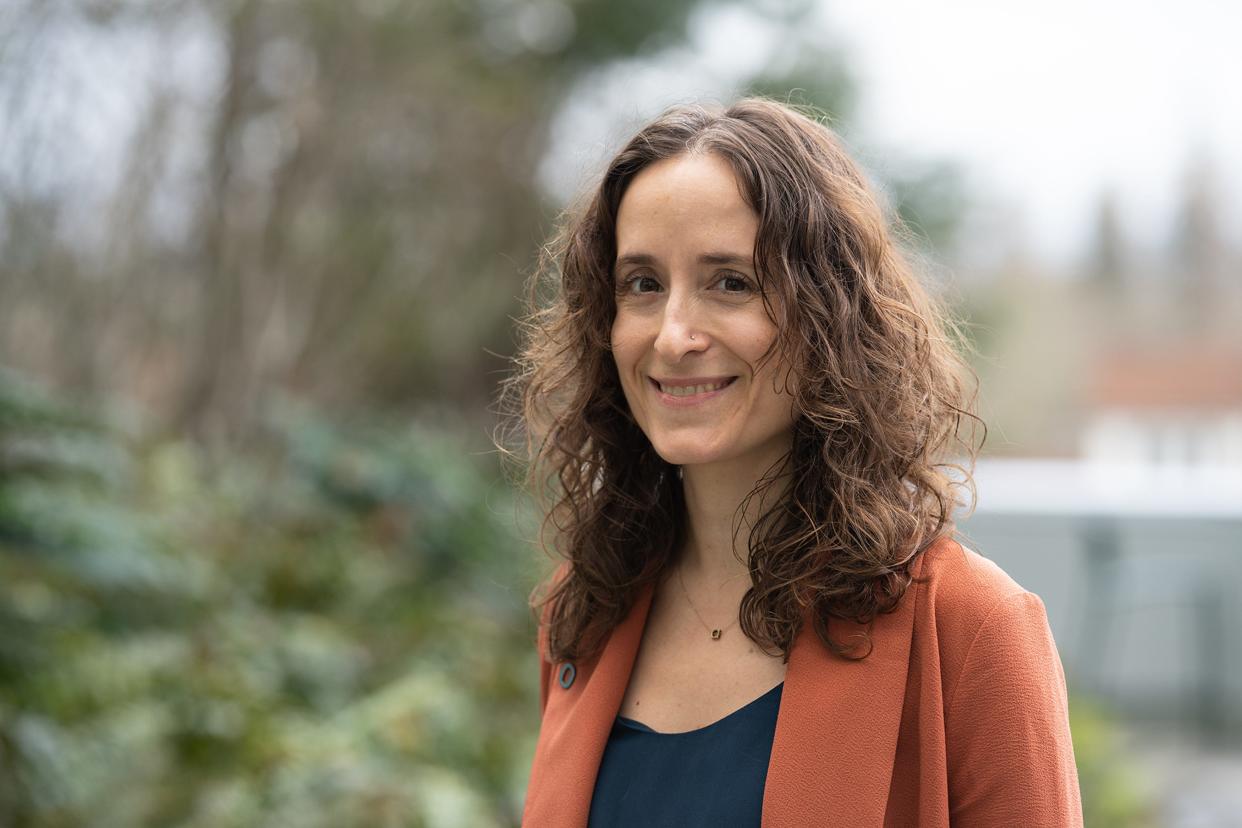4 ways UO's Ballmer Institute plans to help children's mental health

Editor's note: This version of the article correctly state's Katie McLaughlin's name.
The University of Oregon's Ballmer Institute for Children’s Behavioral Health is taking big steps as it approaches its first anniversary, hiring its first executive director.
Launched in 2022 with a $425 million gift from Connie and Steve Ballmer, the institute's goal is to improve the behavioral health and wellness of children and adolescents in Oregon by offering a new mental health undergraduate degree.
According to new executive director Katie McLaughlin, there is a shortage of professionals in the field nationwide. She hopes the Ballmer Institute will not only help fill some of those gaps, but that the institute and UO will inspire other universities around the nation.
Here's what you need to know about the Ballmer Institute and the latest developments in the program.
1. Meet Katie McLaughlin
McLaughlin, currently professor of psychology and director of the Stress and Development Laboratory at Harvard University, has been named the new executive director of the Ballmer Institute. She is a clinical psychologist who specializes in how environmental experience influences the development of children and adolescents.
"I am most interested in just the enormous potential that this initiative has to impact children and families, you know, not only in the Pacific Northwest, but really around the country," McLaughlin said. "The idea of training undergraduates to be frontline mental health professionals is completely novel in the United States. Nobody has ever tried this before."
McLaughlin will be taking over in August. Former dean of the UO College of Education Randy Kamphaus has served as acting executive director since March.
UO interim president Patrick Phillips said McLaughlin fit the university and institute's vision for the direction of the program.
"It's not just academic scholarship, per se, it's the work that she does and how engaged it is, and her commitment that's reflected in addressing children's behavioral (and) mental health," Phillips said. "She's one of the leading people in the whole country. We feel very fortunate that she will be joining us."
2. The first of its kind
The Ballmer Institute's program is the first undergraduate behavioral health degree program of its kind in the country.
In December, the UO received formal approval from Oregon’s Higher Education Coordinating Commission to create the bachelor's degree in Child Behavioral Health.
Graduates will be the first in the United States fully trained at the undergraduate level to deliver a broad range of behavioral health services, including screening and early detection of mental health disorders. Early diagnosis of conditions such as ADHD, Autism, OCD and others can help youth and their families navigate mental health services and find the most appropriate resources.
"Existing undergraduate programs really don't provide (that)," McLaughlin said. "They don't provide the kinds of clinical training that would allow undergraduates to leave college and be able to serve in their communities in practice."
The need for mental health professionals and interventions, especially those who specialize in youth services, is dire. The number of youth that need specialized mental health care far exceeds the professionals offering it, leaving families with little to no options and months or years without accessible care. McLaughlin said the situation is at a "breaking point."
McLaughlin said this has been ongoing for more than a decade, but the COVID-19 pandemic heightened many of these needs.
She said training mental health professionals at the undergraduate level is an "incredibly promising solution" that has shown results in other countries such as the United Kingdom.
"We have really good evidence that this can work, that a college degree is sufficient to be well trained to be a frontline provider to identify children who may be struggling with behavioral health difficulties and to deliver skill-based interventions that may help prevent those problems from getting worse over time," McLaughlin said.
3. Headquarters in Portland
The Ballmer Institute will be based at the new UO Portland Campus in northeast Portland.
This 19-acre campus was formerly Concordia University in Portland. UO purchased it in March for $60.5 million. Minimal renovations needed to be made to serve UO's needs, meaning the Ballmer Institute is already preparing to move in.
The campus will house the Ballmer Institute's academic and administrative programs and research centers. The building will be open for classes by this fall.
The Ballmer Institute has several community partners, including Portland Public Schools. Undergraduate students will act as behavioral health trainees in schools, supervised by trained clinical professor faculty.
4. Program sign-up is open
Undergraduate and graduate-level courses opened in 2022. Currently, 80 teachers across Oregon are taking graduate-level courses intended to help educators in their classrooms.
Undergraduate applications for the Ballmer Institute's bachelor's degree program in Child Behavioral Health went live Wednesday. Students are admitted to the major for their final two years and begin the program in the fall.
Although there is no estimate for the number of students interested in the program yet, psychology is the major with the highest number of students, according to Phillips. McLaughlin is expecting significant interest.
"I've been a professor of psychology for 15 years working with undergraduates, teaching undergraduates who are interested in psychology as a discipline," McLaughlin said. "I can tell you that my students have been hungry for exactly this kind of training program."
Miranda Cyr reports on education for The Register-Guard. You can contact her at mcyr@registerguard.com or find her on Twitter @mirandabcyr.
This article originally appeared on Register-Guard: 4 ways UO's Ballmer Institute plans to help children's mental health

